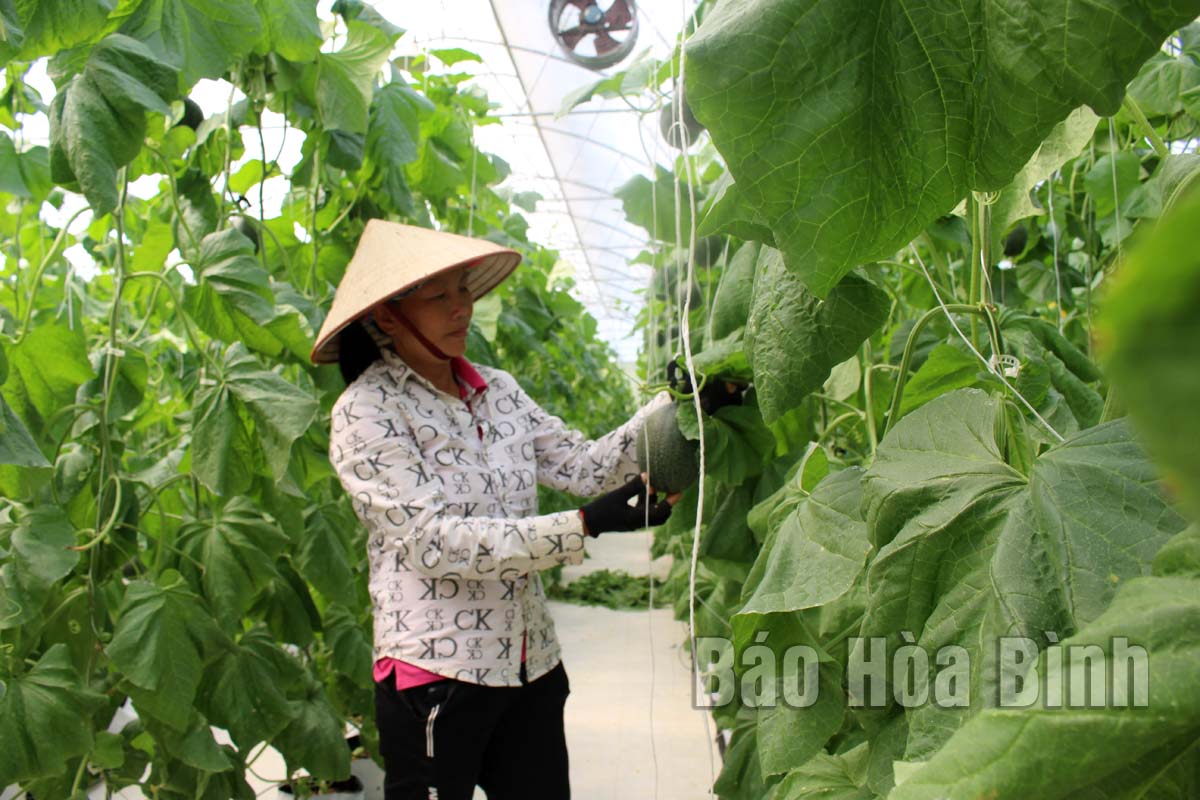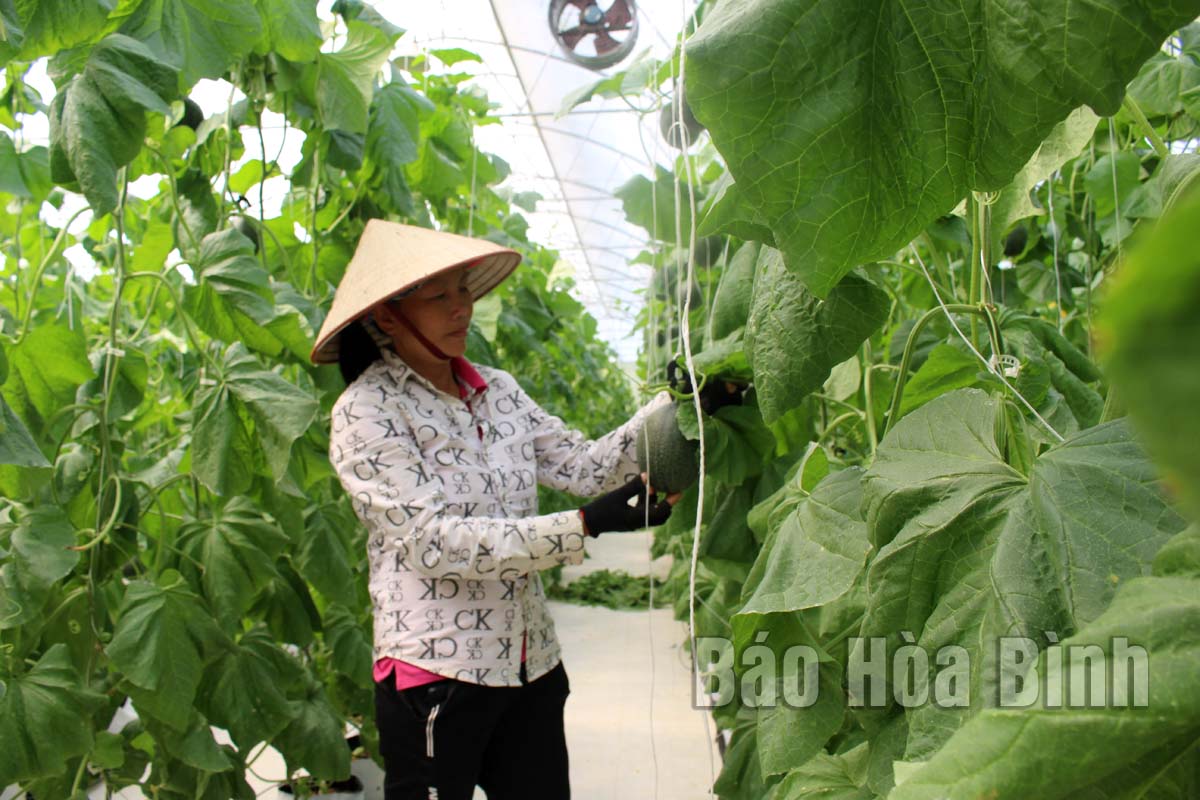
(HBO) – After five years of implementing the "One Commune-One Product” (OCOP) programme, Hoa Binh has discovered a number of shortcomings in the work, including the modest production scale and popularisation activities.
Green Ichiba melon, a three-star OCOP product by
Truong Thinh High Technology Agriculture Investment JSC in Lac Thuy has met
GlobalGAP standards.
In reality, the production of a number of OCOP recognised products has not been
expanded, while the market demand is high.
According to the coordinating office for new-style rural area building of Hoa
Binh, each year, the majority of products registered for OCOP programme have
received low score due to small production scale and modest quality, and a lack
of safe production standards such as VietGAP or organic. The reason behind the
situation is low investment in production process, and farmers’ poor
understanding of the OCOP programme.
Hoang Van Tuan, deputy chief of the provincial coordinating office for
new-style rural area building said that in order to promote OCOP products’
trademark and head to export, it is necessary to mobilise the engagement of the
whole political system and the community by popularising the programme and
encouraging people to join the programme.
Meanwhile, it is necessary to increase trade promotion and conduct general
intellectual property protection for the whole programme, while guiding
producers of protected products to abide by relevant regulations, including
those in origin.
Tuan said that along with ensuring good quality and prices of their products,
the province should support farmers to sell their OCOP products in e-commerce
platforms such as Sendo, Voso, Postmart.vn, Shopee and Lazada.
Tuan also advised the province to focus on developing OCOP products in
association with promoting the locality’s major farm produce such as citrus
fruits and Da River’s fish./.
According to data from the Hoa Binh Provincial Party Committee, the industrial production index for the first six months of 2025 is estimated to have increased by 20% compared to the same period last year. This marks the highest year-on-year growth rate for this period since 2020.
In the first six months of 2025, Hoa Binh province’s export turnover was estimated at 1.145 billion USD, marking an 18.11% increase compared to the same period in 2024. Import turnover was estimated at $ 804 million, a 17.15% increase, which helped the province maintain a positive trade balance.
The lives of the ethnic minority farmers in Tan Lac district have gradually improved thanks to the new directions in agricultural production. This is a testament to the collective strength fostered through the professional associations and groups implemented by various levels of the district’s Farmers’ Union.
With the motto the "product quality comes first,” after nearly one year of establishment and operation, Muong village’s Clean Food Agricultural and Commercial Cooperative, located in Cau Hamlet, Hung Son Commune (Kim Boi district), has launched reputable, high-quality agricultural products to the market that are well-received by consumers. The products such as Muong village’s pork sausage, salt-cured chicken, and salt-cured pork hocks have gradually carved out a place in the market and they are on the path to obtaining the OCOP certification.
In the past, the phrase "bumper harvest, rock-bottom prices" was a familiar refrain for Vietnamese farmers engaged in fragmented, small-scale agriculture. But today, a new spirit is emerging across rural areas of Hoa Binh province - one of collaboration, organisation, and collective economic models that provide a stable foundation for production.
Maintaining growing area codes and packing facility codes in accordance with regulations is a mandatory requirement for agricultural products to be eligible for export. Recently, the Department of Agriculture and Environment of Hoa Binh province has intensified technical supervision of designated farming areas and packing facilities to safeguard the "green passport" that enables its products to access international markets.



